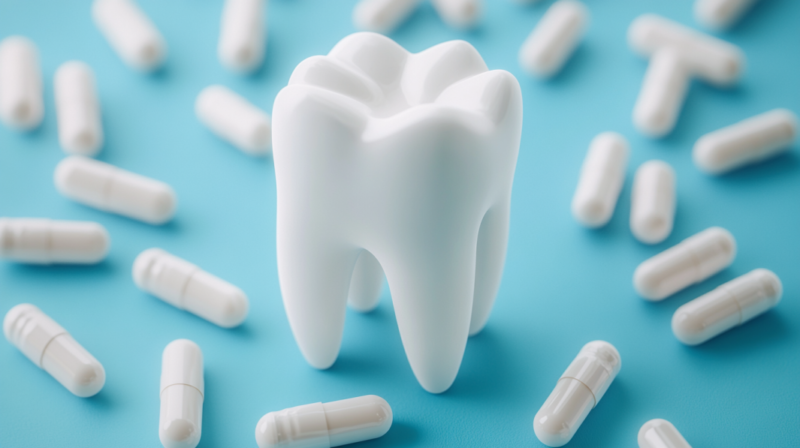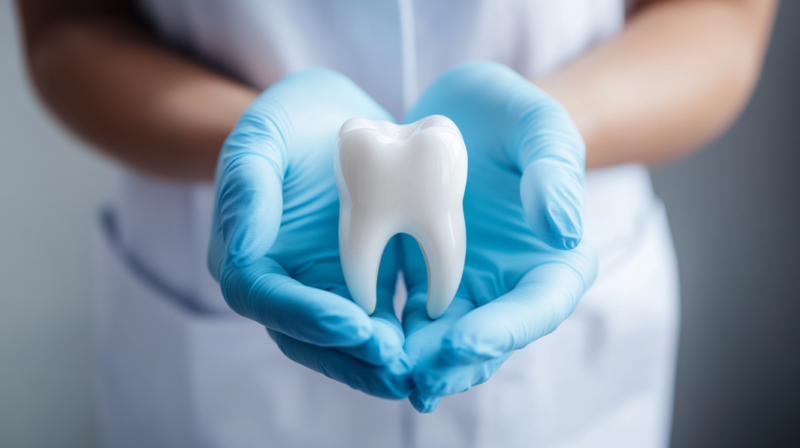Maintaining good oral hygiene is crucial at any age, but for seniors, it becomes even more important.
As we get older, the risk of gum infections and other dental issues increases due to factors like medications, chronic illnesses, and natural changes in the mouth.
According to the Mayo Clinic, oral health is directly linked to overall health, affecting conditions like heart disease and diabetes.
What Are the Risks
View this post on Instagram
Gum disease, also known as periodontal disease, is a common issue among older adults.
The Centers for Disease Control and Prevention (CDC) reports that nearly 70% of adults aged 65 and older have periodontal disease.
Gum infections can lead to tooth loss and have been linked to other serious health problems.
Common Oral Health Challenges for Seniors
- Dry Mouth: Medications for conditions like high blood pressure and depression can reduce saliva flow, leading to dry mouth. The American Dental Association notes that saliva is essential for neutralizing acids and preventing tooth decay.
- Receding Gums: Natural aging can cause gums to recede, exposing the roots of teeth and increasing sensitivity and risk of decay.
- Chronic Diseases: Conditions such as diabetes can exacerbate gum problems. According to the World Health Organization, diabetes increases the risk of periodontal disease.
9 Practical Steps to Prevent Gum Infections
1. Regular Dental Check-ups

The Mayo Clinic recommends at least two check-ups per year to catch issues early and perform professional cleanings.
Don’t hesitate to visit more often if you notice any signs of gum problems like redness, swelling, or bleeding.
2. Proper Brushing Techniques
Brushing twice a day is standard advice, but technique matters:
- Use a Soft-bristled Toothbrush: Gentle bristles protect the gums. The National Institute on Aging suggests replacing your toothbrush every three to four months.
- Consider an Electric Toothbrush: For those with arthritis or limited mobility, electric toothbrushes can make brushing easier and more effective.
- Don’t Rush: Spend at least two minutes brushing, ensuring you clean all surfaces.
3. Daily Flossing
Flossing removes plaque and food particles that brushing misses.
If traditional floss is difficult to handle, alternatives like floss picks or water flossers can be helpful.
According to the American Dental Association, daily flossing is essential for preventing gum disease.
4. Use Antimicrobial Mouthwash
An antimicrobial or antibacterial mouthwash can reduce plaque and prevent gingivitis.
The CDC emphasizes the importance of mouthwash as part of a daily oral care routine (CDC, 2021).
Look for products with the American Dental Association Seal of Acceptance.
5. Maintain a Balanced Diet

Nutrition plays a significant role in oral health:
- Limit Sugary Foods and Drinks: Sugar promotes tooth decay. The World Health Organization recommends reducing sugar intake to less than 10% of total daily calories.
- Eat Calcium-rich Foods: Dairy products, leafy greens, and fortified foods strengthen teeth.
- Stay Hydrated: Water helps wash away food particles and keeps saliva levels healthy.
6. Quit Smoking
The Centers for Disease Control and Prevention (CDC) states that smokers are twice as likely to develop gum disease compared to non-smokers.
Smoking weakens your immune system, making it harder to fight off gum infections, and impairs healing once your gums are damaged.
Quitting smoking can dramatically improve your gum health and reduce the risk of tooth loss and oral cancers. While quitting can be challenging, resources like nicotine replacement therapies, support groups, and counseling are available to help you succeed.
7. Review Your Medications

Medications are a common part of many seniors’ daily routines, but some drugs can have side effects that impact oral health, such as causing dry mouth or leading to gum overgrowth. These side effects can increase the risk of gum infections and tooth decay.
It’s important to review your medications with your healthcare provider or pharmacist. They can identify any drugs that might be affecting your oral health and discuss possible alternatives or adjustments.
For instance, they may adjust dosages, switch you to a different medication, or suggest remedies to counteract side effects, like specialized mouthwashes or saliva substitutes.
8. Proper Care of Dentures and Dental Appliances
For those with dentures:
- Clean Daily: Remove and clean dentures every day to prevent bacterial buildup.
- Remove at Night: This allows the gums to rest and reduces irritation.
- Ensure Proper Fit: Ill-fitting dentures can cause sores and infections. Regular dental visits can ensure they fit correctly.
9. Stay Informed and Proactive
Educate yourself about common symptoms, which include:
- Red or Swollen Gums: Inflammation or puffiness in the gums is often the first sign of gum issues.
- Bleeding When Brushing or Flossing: Healthy gums shouldn’t bleed during regular oral care routines.
- Persistent Bad Breath: Ongoing bad breath or a bad taste in the mouth can indicate bacterial buildup due to gum disease.
- Loose Teeth: As gum disease progresses, it can destroy the supporting tissues and bone, leading to tooth mobility.
The National Institute of Dental and Craniofacial Research points out that early-stage gum disease is often painless, so these symptoms might be easy to overlook.
If you notice any of these signs, it’s important to schedule a dental appointment promptly.
The Connection Between Oral Health and Overall Health

Good oral hygiene doesn’t just protect your teeth and gums—it can have a ripple effect on your entire body.
Heart Disease
Believe it or not, the health of your gums can impact your heart. Research suggests a strong link between gum disease and heart disease.
According to the American Heart Association, inflammation caused by periodontal disease may contribute to the buildup of plaque in your arteries, known as atherosclerosis.
This plaque can harden and narrow your arteries, increasing the risk of heart attacks and strokes.
Bacteria from infected gums can enter your bloodstream, triggering inflammation and potentially leading to blood clots. By taking care of your oral health, you’re also taking a proactive step toward protecting your cardiovascular system.
Diabetes Management
The relationship between gum disease and diabetes is a two-way street. Gum disease can make it more challenging to control blood sugar levels because the infection can cause blood sugar to rise.
Conversely, high blood sugar provides ideal conditions for bacteria to thrive, worsening gum infections.
The American Diabetes Association emphasizes that managing the periodontal disease is crucial for effective diabetes control.
Regular dental check-ups and meticulous oral hygiene can help prevent gum disease and make managing diabetes easier.
Respiratory Infections
View this post on Instagram
Your mouth can be a gateway for bacteria to enter your lungs, especially if oral hygiene is neglected.
The Centers for Disease Control and Prevention (CDC) notes that bacteria from infected gums can be inhaled into the lower respiratory tract, potentially leading to infections like pneumonia.
This risk is particularly significant for seniors, whose immune systems may be compromised.
Good oral hygiene reduces the number of harmful bacteria in the mouth, thereby lowering the risk of respiratory infections.

